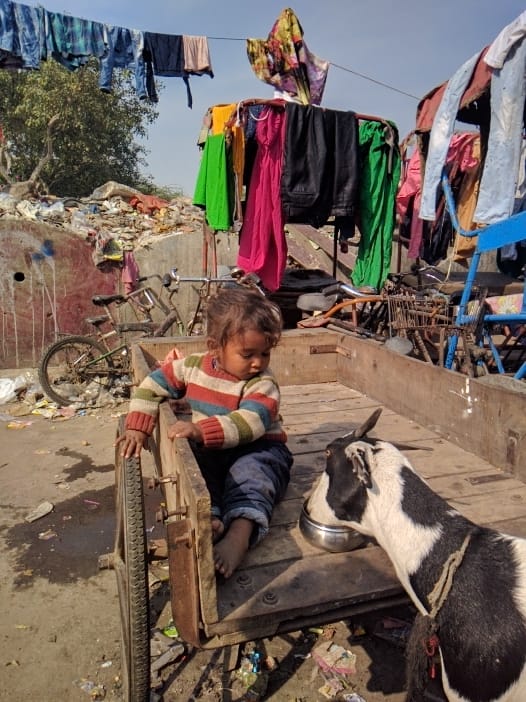Who We Are?
THINKPAWS (Thinkpaws Sustainability Research Foundation) is a trans-disciplinary Think Tank with its roots in fundamental sciences. Our genesis lies in being a collaborative research entity based at the University of Oxford and Wildlife Institute of India, dedicated to advancing our understanding of the “Planet of Cities“. Currently based out of New Delhi, India, we are exploring the ways in which urbanization and the associated waste it generates are transforming the global biosphere and altering the relationships between humans and animals in shared spaces. The bond between people and nature has diverse expressions, and the ecology and culture of waste generation and management play a significant role in shaping these relationships. To create a sustainable and biodiverse future, it is crucial to incorporate human social-cultural considerations into ecological research. Despite growing evidence, there is still limited understanding of how wildlife and domestic/feral animals are connected to human activities, politics, history, socio-economics, and planning within tropical and underdeveloped regions of the world. As a result, the rapid pace of urbanization in the tropics presents a unique opportunity to study the unintended effects of human actions on the evolution of life, with important implications for promoting healthy and sustainable human-animal coexistence.
Thinkpaws Mission
Uniting the theoretical fundamentals of One Health & breakthrough applications of Internet of Humanimals


The rapid pace of urbanization, characterized by the growth of infrastructure and migration of populations from rural areas to cities, is a global issue. In the coming decades, the majority of urban dwellers will be located in tropical regions, particularly Asia and Africa, which face complex challenges in balancing conservation and development. As developing countries prepare to urbanize over 2.5 billion citizens, it is crucial to assess the wide-ranging ecological, health, social, economic, and cultural impacts of urban expansion on both humans and non-human life forms across various scales, including land, water bodies, seas, and oceans. However, there remains a lack of in-depth research on these issues.
Despite the recognition of the need for transdisciplinary urban ecological assessments in, of, and for cities, the growth of the poorly developed “Science of Coexistence” remains hindered by disciplinary silos which we are endeavoring to unite. Given the increasing threats to various life forms from human activities, the ecological consequences of human-generated organic waste biomass will play a critical role in shaping relationships between humans and animals. Animals’ movements, feeding habits, and reproduction are largely determined by the distribution of resources in the landscape, and research at THINKPAWS has highlighted the impact of human refuse on the connection between humans and nature in landscapes dominated by humans, where biodiversity is being homogenized by opportunistic species. Our mission is to continuously magnify this impactful work by churning breakthrough trans-disciplinary insights on the matter by exploring fundamental scientific dynamics governing One Health aspects and bringing the knowledge to our ambitious application, Internet of Humanimals – World’s most robust system for tracking and predicting real-time risk in any space co-inhabited by Humans and Animals.

Our Vision
Born out of a seed grant from the India Oxford Initiative, THINKPAWS is a rare competence trans-disciplinary research think-tank that brings together a diverse range of experts from academia, administration, practice, policy, and citizenship while staying rooted in the most fundamental scientific research. With representation from five continents, our team offers a wealth of perspectives on the topic of urbanization and its impact on human-animal relations. Our goal is to conduct long-term, actionable studies on the effects of urbanization in the tropics, specifically in the Global South where the process is still ongoing. This region is significant because it serves as the wintering destination for millions of migratory birds, representing both threatened species and those that can impact human, animal, and environmental health through the spread of pathogens and toxicants. By considering the complexities of urbanization in these regions, Thinkpaws aims to advance our understanding of sustainable human-animal coexistence and unraveling the tangle of waste in diverse systems at every scale on this planet.
The Much Needed Perspective
The limited understanding of ecology in tropical human-dominated landscapes has resulted in a lack of perspectives and approaches to public health that can encompass the non-Western realities. While there has been a recent increase in studies exploring the correlations between the environment, biodiversity, and human-induced harm, biologists still lack knowledge of the mechanisms that support the coexistence of hundreds of species in close proximity to humans in non-Western cities. Despite the absence of a modern scientific approach, folk perspectives continue to shape the interactions between humans and animals in the vast and diverse human-dominated urban ecosystems of the Global South. For example, South Asian cities are known for their unusually high tolerance for animals, often linked to rituals and mythological beliefs that involve offering food subsidies to various species, such as cows, dogs, monkeys, kites, and passerine birds. Our research seeks to understand the ecological and behavioral implications of these diverse socio-cultural beliefs and to provide actionable outputs for urban wildlife management.
Core objective:
Examining how the human & non-human aspects of culture shape
People-Nature connections in tropical ecosystems
To determine areas, patterns, and stages in the animal life cycle where the likelihood of human-animal conflict and transmission of zoonotic diseases is significant:
Our goal is to understand how animals interact with urban features such as roads, pavements, parks, and garbage piles through their species-specific movement patterns. By utilizing new long-range wireless tags (LoRA), we aim to examine the cultural, evolutionary, and demographic processes that shape human-animal interfaces in tropical cities. The use of LoRA tags is particularly well-suited for tropical cities as they are small in size and utilize a hybrid communication system that combines GSM-internet and base-station technology, reducing costs and signal interference. Our objective is to shed light on how animal movements and behaviors influence the formation of animal social networks, based on the flow of information related to food, mates, and shelter.
To delve into the interconnections between natural and cultural behavioral processes at the human-animal interface:
To explore the intersection of natural and cultural behaviors at the human-animal interface, we will investigate the mutual responses between human and animal cultures within the context of a constantly evolving multi-species ecosystem shaped by anthropogenic resources, cultural practices, and beliefs. This research will shed light on the conflicting choices (benefits versus costs) faced by humans and animals as they navigate their proximity to each other, particularly in rapidly changing living spaces in the Global South. This cutting-edge examination has far-reaching implications for understanding and addressing the complex dynamics of coexistence between people, wildlife, and domestic/feral animals in urban environments.
To take advantage of the unique field experimental possibilities presented by the heterogeneous development of tropical cities:
To better understand the complex relationship between humans and animals in urban environments, THINKPAWS aims to take advantage of the unique on-field experimental opportunities presented by cities like Delhi. These rapidly developing urban areas offer a chance to disentangle the separate effects of infrastructure, anthropogenic resources, and human presence on animal behavior, which are often confounded as a single entity known as “anthropogenic impacts.” With their heterogeneous development and ongoing changes, cities in the Global South provide an ideal setting to observe animal ecology and behavior as they respond to rapid environmental changes, ultimately leading to a greater understanding of human-animal coexistence in urban environments.
To integrate fundamental and practical field research with traditional practices in tropical ecosystems to drive significant public impacts:
Our work on “Urban Natures” in India aims to bring together the diverse perspectives on nature, from traditional cultural and religious beliefs to modern scientific approaches. While these perspectives can sometimes diverge, they can also complement each other to create a more holistic understanding of the complex relationship between humans and animals in rapidly urbanizing ecosystems. By promoting collaboration and communication between the fields of basic and applied sciences and engaging with a wide range of stakeholders, we hope to bridge the gap between folk biology and modern scientific perspectives and promote sustainable and responsible management of the shared environments in tropical regions. Our goal is to recognize and respect the diversity of perspectives on “urbanizing natures” and find ways to integrate them in a way that benefits both humans and animals.